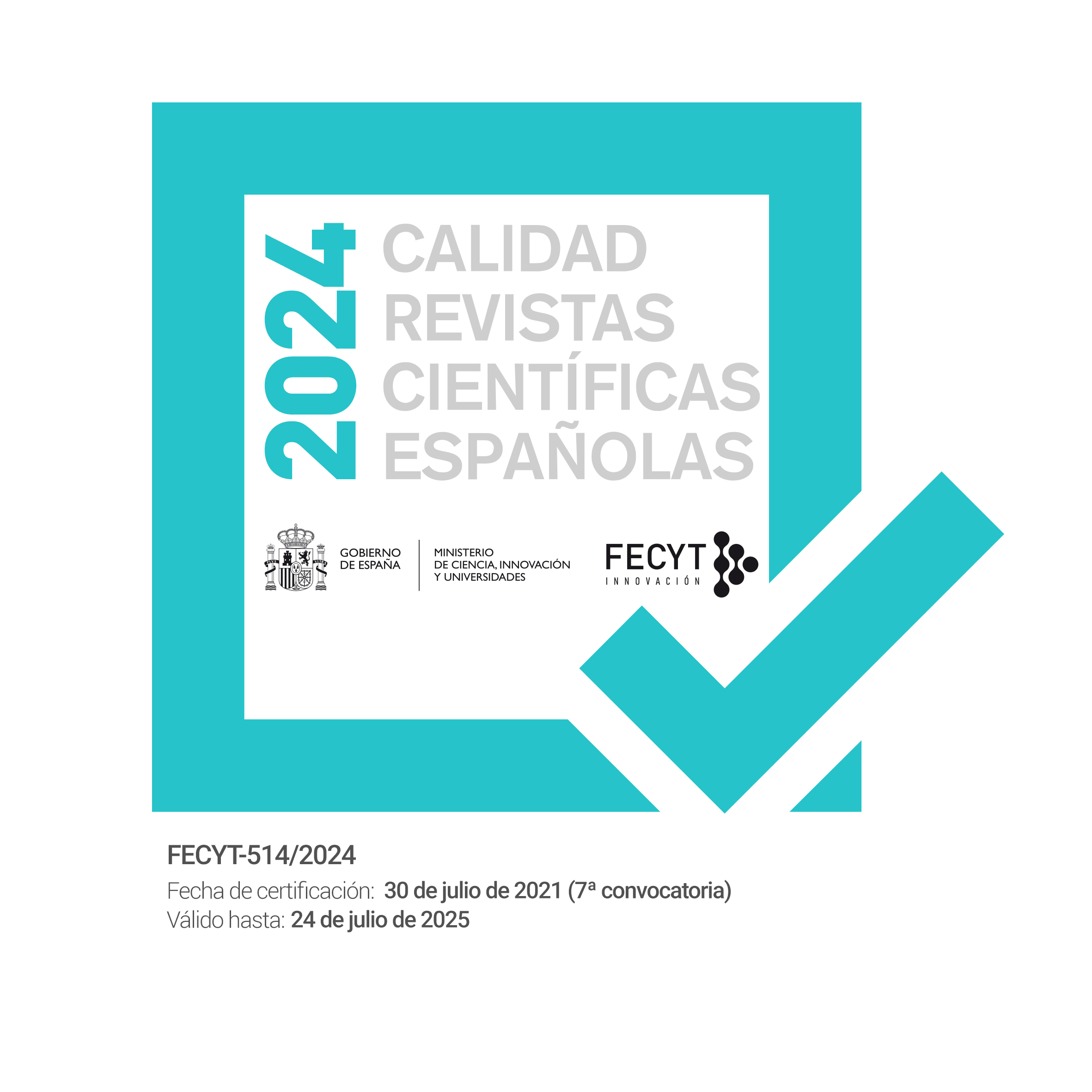“Corporeal Activism in Elizabeth Acevedo’s The Poet X: Towards a Self-Appropriation of US Afro-Latinas’ Bodies”
DOI:
https://doi.org/10.12795/REN.2021.i25.01Keywords:
Afro-Latina; racism; gender; body; slam poetry; sexual desire; embodied discourse; self-representationAbstract
Scholars have typically studied Chicanas/Latinas in the US and African American women separately. However, this paper explores both the cultural appropriation of Afro-Latinas’ bodies in the US and the strategies they employed to reclaim their bodies and agencies through Elizabeth Acevedo’s novel, The Poet X. Despite the fact that the teenager protagonist of the novel considers herself “morenita,” rather than black due to her Dominican background; her body is simultaneously and paradoxically hyper-sexualized by racist discourses, and called to chastity by the patriarchal Catholic doctrine presiding over her Dominican community. Nevertheless, I argue that the protagonist makes her body a site of activism as she re-appropriates the agency over her body by moving from a self-imposed invisibility and silence in order to try to avoid the hyper-sexualization of her incipient curves, to a non-objectified visible position through her sexual desire, self-representative embodied narrative, and performance of her slam poetry.
Downloads
References
ACEVEDO, Elizabeth. The Poet X. Harper Teen, 2018.
BENNETT, Michael and Vanessa D. Dickerson. Recovering the Black Female Body: Self-Representations by African American Women. Rutgers UP, 2001.
BLANCO BORELLI, Melissa. “‘Presencing’ Pleasure and Pain in Hispanophone Caribbean Performance.” The Black Scholar, vol.49, no. 4, 2019, pp. 6-19.
BROOKS, Dafne A. “The Deeds Done in My Body:’ Black Feminist Theory, Performance, and the Truth about Adah Isaacs Menken.” Recovering the Black Female Body: Self-Representations by African American Women. Rutgers UP, 2001, pp. 41-70.
BROWN, Jayna. “Body.” Keywords for African American Studies. New York UP, 2018.
COLLINS, Patricia Hills. Black Sexual Politics: African Americans, Gender, and the New Racism. Routledge, 2004.
——“Black Women and Motherhood.” Black Feminist Thought: Knowledge, Consciousness, and the Politics of Empowerment, edited by Patricia Hill Collins, Routledge, 2000, pp. 173-199.
CELIS-SALGADO, Nadia. “Entre el Fetiche y el Cuerpo Propio: Las niñas en las escritoras del Caribe hispano.” Cuadernos de Literatura del Caribe e Hispanoamérica. El Gran Caribe en femenino: dos volúmenes plurales, no. 18, 2013, pp. 15-34.
CRUZ-JANZEN, Marta. “Latinegras: Desired Women-Undesirable Mothers, Daughters, Sisters, and Wives” The Afro-Latin@ Reader: History and Culture in the United States, edited by Miriam Jiménez Román and Juan Flores, Duke UP, 2010, pp. 282-295.
DINES, Gail. “Nicky Minaj: Little More Than a Big Butt” Huffington Post, 27 Sept. 2014. http://www.huffingtonpost.co.uk/gail-dines/nicki-minaj_b_5629232.html. Accessed 22 November 2020.
DUANY, Jorge. Blurred Borders: Transnational Migration between the Hispanic Caribbean and the United States. The University of North Carolina Press, 2011.
DURHAM, Aisha et al. “The Stage Hip-Hop Feminism Built: A New Directions Essay.” Signs, vol. 38, no. 3, 2013, pp. 721-737.
EDWARDS, Brent Hayes. “The Uses of Diaspora” Social Text, vol 66, no. 18, 2001, pp. 45-73.
ESCODA-AGUSTÍ, Clara. “I Carve Myself into My Hands:” The Body Experienced from within in Ana Mendieta Work and Migdalia Cruz Miriam’s Flowers.” Hispanic Review, vol. 75, no. 3, 2007, pp. 289-311.
FLORES, Alma Itzé. “A Chicana Mother-Daughter Spiritual Praxis.” The Chicana M(other)hood Work Anthology. The University of Arizona Press, 2019, pp. 195-211.
FOUCAULT, Michael. “Society Must Be Defended” Lectures at the College de France, 1975-76. Picador, 2003.
GALLEGO, Mar. A Ambas Orillas del Atlántico: Geografías de hogar y diáspora en autoras afrodescendientes. KRK Ediciones, 2016.
GIRÓ MIRANDA, Joaquín. Mujeres inmigrantes. Invisibilidad y práctica cotidiana. Ayuntamiento de Logroño, 2009.
GROSFOGUEL, Ramón. Decolonizing Post-Colonial Studies and Paradigms of Political Economy: Transmodernity, Decolonial Thinking, and Global Coloniality. 2011. Berkeley U, Master thesis dissertation.
HINE, Darlene Clark. “Rape and the Inner Lives of Black Women in the Middle West: Preliminary Thoughts on the Culture of Dissemblance,” Signs, vol. 14, no. 4, 1989, pp. 912-920.
HOBSON, Janelle. Venus in the Dark: Blackness and Beauty in Popular Culture. Routledge, 2005.
HOOKS, bell. We Real Cool: Black Men and Masculinity. Routledge, 2004.
JACOBS, Elizabeth. “Shadow of a Man: a Chicana/Latina Drama as Embodied Feminist Practice.” NTQ, vol.31, no. 1, 2015, pp. 49-58.
KAPLAN, Elaine Bell. Not Our Kind of Girl: Unraveling the Myths of Black Teenage Motherhood. University of California Press, 1997.
KEATON, Trica. “Race.” Keywords for African American Studies. New York UP, 2018.
KOCKLEMAN, Paul. “Agency: The Relation Between Meaning, Power, and Knowledge.” Current Anthropology, vol. 48, no. 3, 2007, pp. 375-401.
KRUDAS CUBENSI. “Mi Cuerpo es Mío” Poderosxs, El Fila, 2014. https://www.youtube. com/watch?v=x-Pgwldfx8U.
LEWIS, Gail. “Questions of Presence,” Feminist Review, vol. 117, no. 1, 2017, pp. 1-19.
LÓPEZ-ORO, Paul Joseph. “‘Ni de aquí, ni de allá:’ Garífuna Subjectivities and the Politics of Disporic Belonging.” Afro-Latin@s in Movement: Critical Approaches to Blackness and Transnationalism in the Americas, edited by Petra Rivera-Rideau, Jennifer A. Jones and Tianna S. Paschel, Palgrave Macmillan, 2016, pp. 61-84.
LORDE, Audre. “Age, Race, Class, and Sex: Women Redefining Difference.” Words of Fire. An Anthology of African-American Feminist Thought, edited by Beverly Guy-Shetfall, The New Press, 1995, pp. 284-291.
—“Learning From the 6os” Calling All Black People: a Black Arts Movement Reader, edited by John H. Bracey, et al, University of Massachusetts Press, 2014, pp. 656-662.
LUGONES, María. “Toward a Decolonial Feminism.” Hypatia, vol. 25, no. 4, 2010, pp. 742-759.
MANIGAULT-BRYANT, LeRhonda S. “Religion.” Keywords for African American Studies. New York UP, 2018, pp. 174-179.
MILLS, Fiona. “‘In Between’: The Identification of Afro-Latino/a Literature”
MOÏSE, Myriam. “‘Ain’t I a Woman?’ Grace Nichols and M. NourbeSe Philip Re-Membering and Healing the Black Female Body.” Reconstruction, vol. 40, no. 2, 2018, pp. 135-147.
MORAGA, Cherríe. A Xicana Codex of Changing Consciousness. Duke UP, 2011.
NASH, J. C. “Strange bedfellows: Black feminism and antipornography feminism.” Social Text, vol. 26, no. 4, 2008, pp. 51–76.
QUINN, Rachel Afi. “This Bridge Called the Internet: Black Lesbian Feminist Activism in Santo Domingo.” Transatlantic Feminisms: Women and Gender Studies in Africa and the Diaspora, edited by Cheryl R. Rodriguez, Dzodzi Tsikata and Akosua Adomako Ampofo, Lexigton Books, 2015, pp. 25-44.
SIMPSON, Leanna B. Dancing on Our Turtle’s Back: Stories of Nishnaabeg Recreation, Resurgence and a New Emergence. ARP Books, 2011.
SPILLERS, Hortense. “Mama’s Baby, Papa’s Maybe: An American Grammar Book.” Feminisms Redux: An Anthology of Literary Theory and Criticism, edited by Robyn Warhol-Down and Diane Price Herndl, Rutgers UP, 2009, pp. 443-464.
STILL, Judith. “French Feminist Criticism and Writing the Body.” A History of Feminist Literary Criticism, edited by Gill Plain and Susan Sellers, Cambridge UP, 2007.
WHITE, Cindy L., and Catherine A. Dobris. “The Nobility of Womanhood: ‘Womanhood’ In the Rhetoric of 19th Century Black Club Women.” In Centering Ourselves: African American and Womanist Studies of Discourse, edited by Marsha Houston and Olga Idriss Davis, Hampton Press Inc., 2002, pp. 171-86.
ZAMORA, Omaris. (Trance)formations of an AfroLatina: Embodied Archives of Blackness and Womanhood in Transnational Dominican Women’s Narratives. 2016. Texas U, PhD dissertation.
——“Black Latina Girlhood Poetics of the Body: Church, Sexuality and Dispossession” Post45, www.post45.org/2020/01/black-latina-girlhood-poetics-of-the-body-church-sexuality-and-dispossession/. Accessed 22 November 2020.















